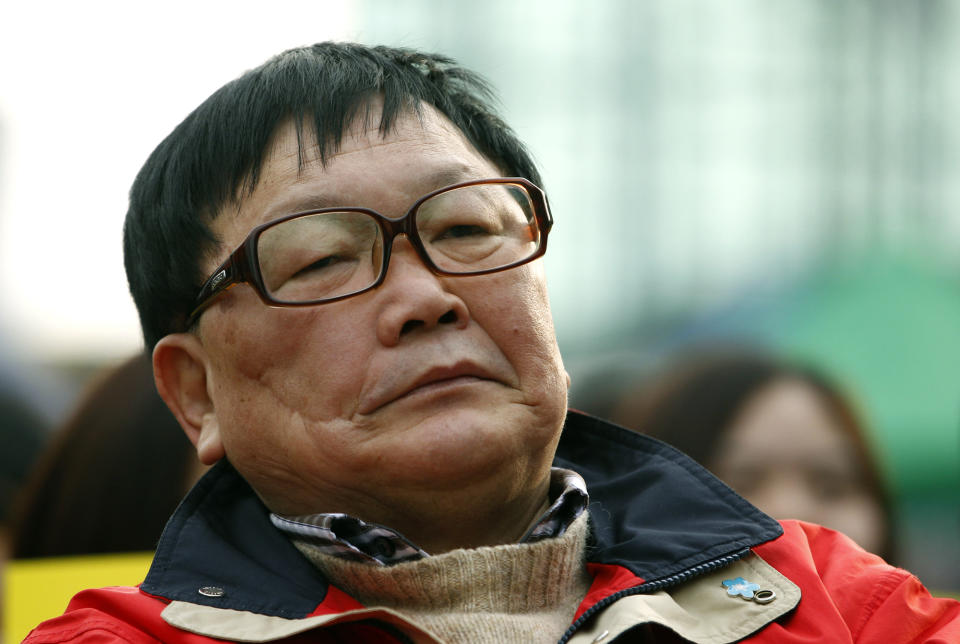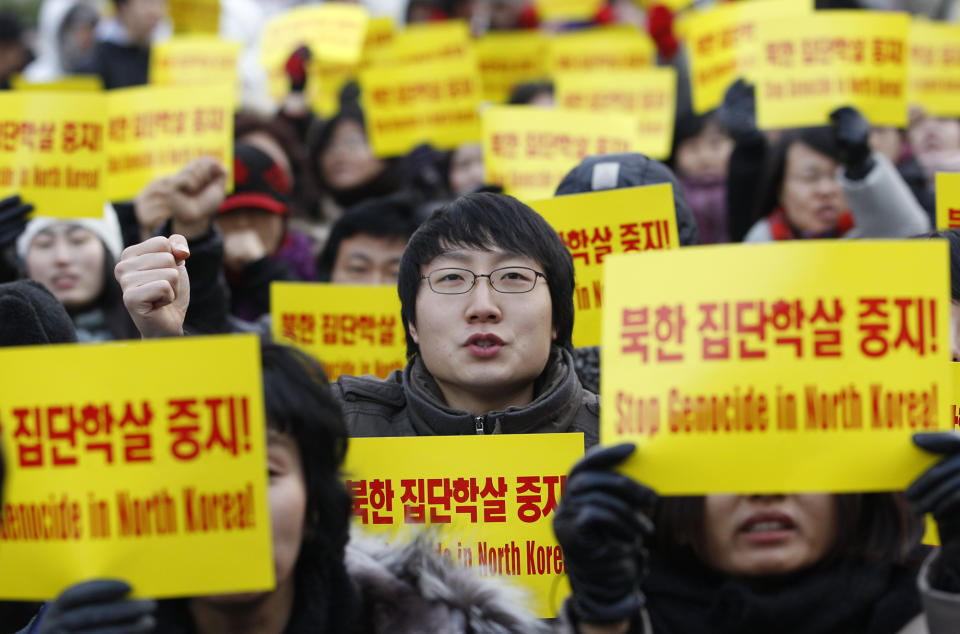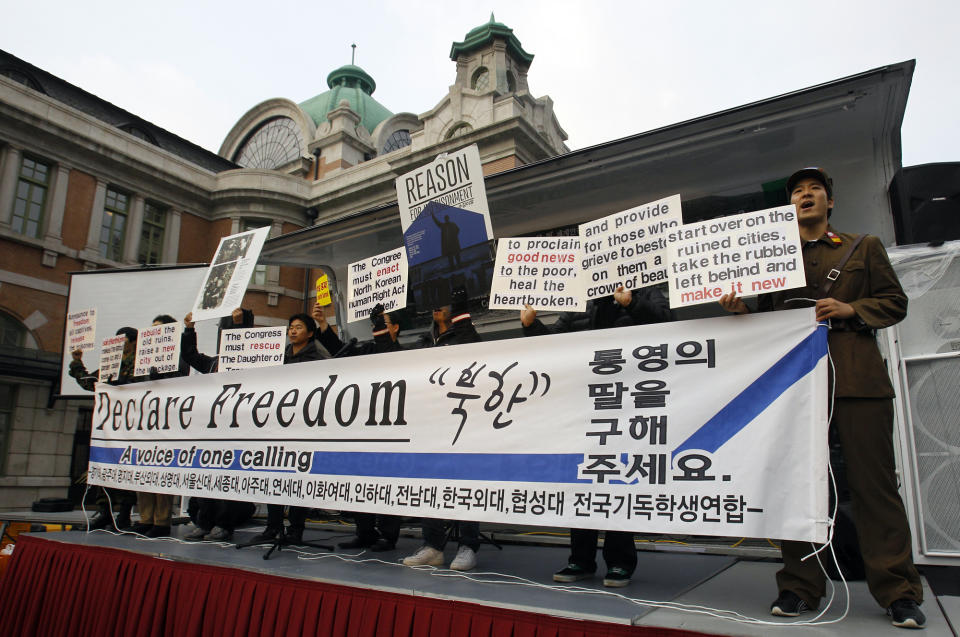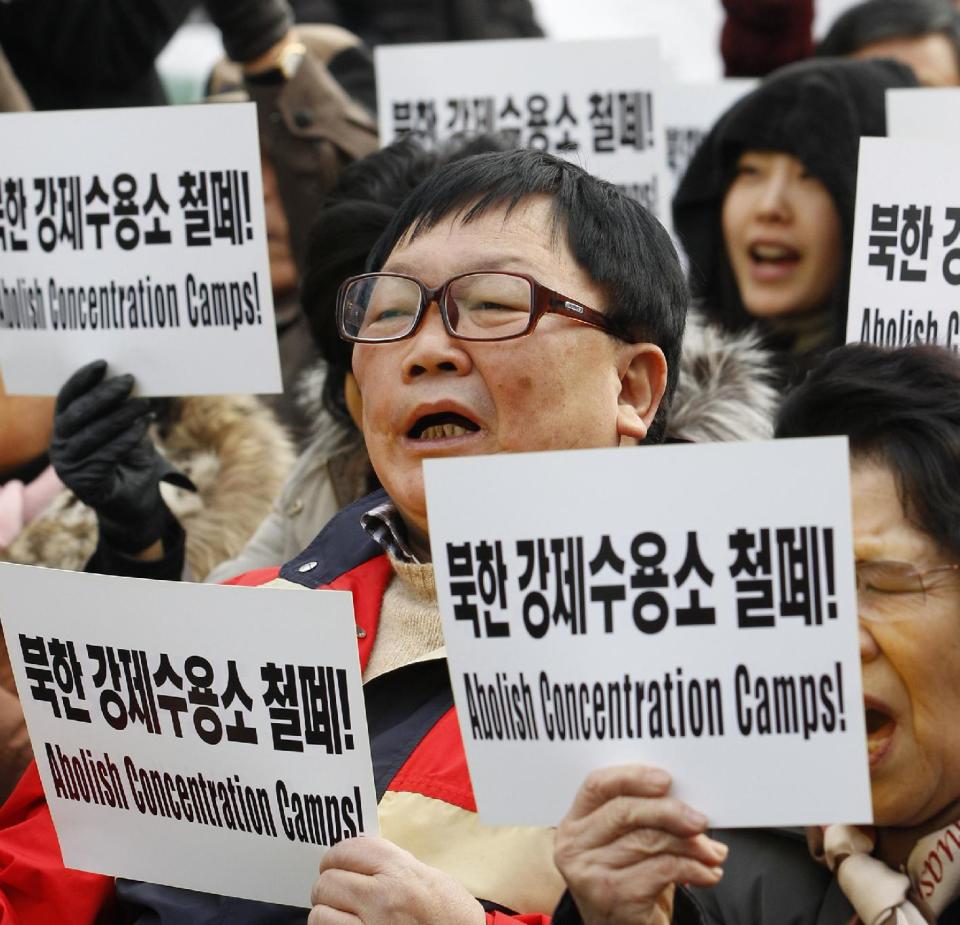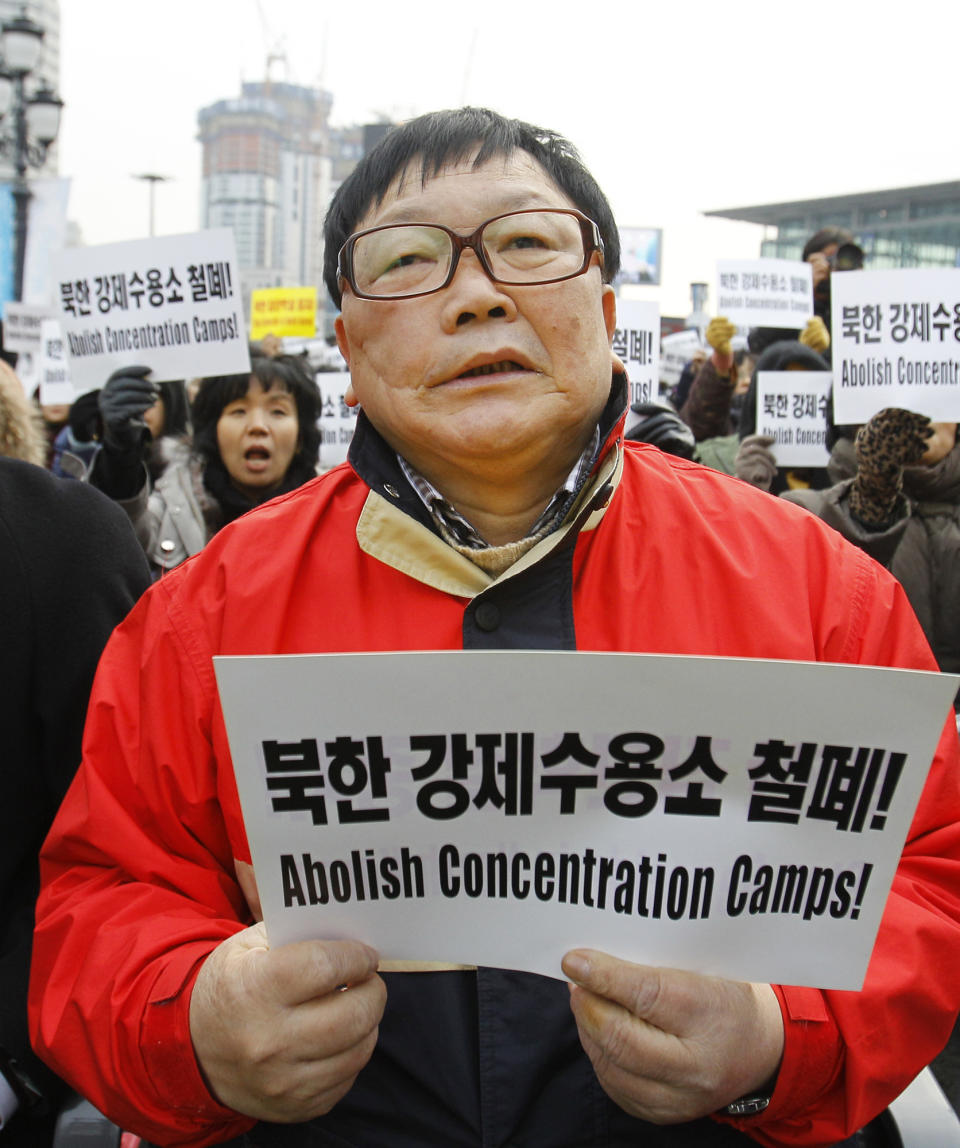SKorean seeks wife, 2 daughters he left in NKorea
SEOUL, South Korea (AP) — In 1985 an idealistic South Korean, Oh Kil-nam, defected with his family to the communist North, lured by promises of an important job and free medical treatment for his ill wife. His voice still cracks as he remembers the winter morning one year later when full of disillusionment he fled, leaving his family behind.
In the years that followed, the faintest traces of Oh's wife and two daughters have sustained his dream of being reunited with them. Tape recordings said to be their voices. A handful of photos that led Oh and human rights activists to believe the women are held in a North Korean prison camp.
Requests since the early 1990s to North Korean authorities for information on the whereabouts of Oh's wife, Shin Sook-ja and his daughters, have yielded only silence. North Korea has never commented on the case. It says any South Koreans in the North are not there against their will. Oh concedes the possibility that all three could be dead.
Attacked on Internet forums and by some South Korean activists as a "cruel man" for taking his family to the North and then abandoning them, Oh said he struggles every day with the painful results of his decisions.
"My wife told me never to be afraid to leave on my own," Oh, 70, said as he recalled her crying as she encouraged him to flee. "Now that decision has haunted my mental sanity for decades."
His case was raised again last week at a U.N. meeting in Switzerland where the organization's special rapporteur on North Korean human rights, Marzuki Darusman, urged Pyongyang to shed light on the fate of Oh's family and allow their reunion. The meeting dissolved into farce as South Korean lawmakers scuffled with the North Korean delegation and chanted slogans against China's policy of sending North Korean defectors back to their homeland.
"I only hope spring will come to both my family and the North Korean defectors," Oh said. He hopes dictator Kim Jong Il's death last December, and the installation of his young son Kim Jong Un as leader, will result in North Korea relenting on its hardline policy.
Oh's tragedy is a legacy of the Korean peninsula's division in 1945 by the World War II allies that separated millions of Korean families — and the 1950-53 war between South Korea and North Korea, which ended in an uneasy truce rather a peace treaty. About 80,000 South Koreans are now waiting for a chance to be reunited with relatives in the North, no matter how briefly, according to the Red Cross in Seoul.
After the war, more than 500 South Koreans were abducted by North Korean agents and have not returned, according to Seoul's Unification Ministry. About 90 percent of them were fishermen. And more than 21,000 North Koreans have defected to the South, Seoul says.
In March last year, a South Korean publisher sent a letter to Pyongyang through Seoul officials, demanding that his father be repatriated 43 years after a commercial airplane he was traveling on was hijacked by North Korea. Thirty-nine other South Koreans returned, but Pyongyang said the remaining 11 chose to stay.
Oh's campaign to save his family got a boost in early 2011 when a photo exhibition in Seoul on North Korea's human rights conditions drew South Korea's First Lady Kim Yoon-ok and hundreds of other guests. Photos of Oh's wife and daughters were part of the exhibition that portrayed lives in North Korea's prison camps as harsh and inhumane.
Since then, conservative South Korean media have dubbed Oh's wife the "daughter of Tongyeong," a city on South Korea's southern coast where she was born and raised. The story of the missing family has also captured the imagination of many South Koreas who still have little to no knowledge about the fate of their loved ones in the North.
Public sympathy surrounding Shin Sook-ja grew further when people learned that she was sent to Germany in the early 1960's as a nurse. Many South Koreans still consider former nurses like Shin a sad symbol of the country's past struggle to earn hard currency in the years after the Korean War.
Oh said in 1985 he was studying economics in West Germany when North Korean agents approached him. He was promised an important role as a scholar who would work to improve the lives of North Koreans and help reunify the Korean peninsular. His wife, suffering from hepatitis, would get free medical care.
Disgruntled with Seoul's authoritarian military government of the time, Oh defected to Pyongyang. He said he was soon forced to appear on propaganda broadcasts and work as a spy.
As a North Korean agent, Oh says he was sent to Denmark to persuade two South Korean students to defect to Pyongyang. But he had grown disenchanted with the North's poverty and what he'd decided was its fake socialist system. Once in Denmark he escaped to Germany. He hoped he could one day bring his family out, too.
"My conscience told me that I would be destroying other South Korean families if I brought their loved ones to North Korea," he said. "But the price I paid for refusing to work for the North turned out to be my family."
He enlisted Amnesty International and German officials in his efforts to reunite with this family but to no avail. In 1991, Oh said he met with a South Korean-born German composer, Isang Yun, with links to the government in Pyongyang who gave him tape recordings that Oh believes are the voices of his family. They speak about how they miss him. One of his daughters says she thinks about what gift she should give her father when they meet again. The next year, Oh returned to South Korea.
Oh's belief, and that of activists too, that his wife and daughters are held in a North Korean prison camp is partly based on the background scenery in photographs taken of the women after Oh left. Oh said the photos were also delivered to him by Yun. The composer's family has been quoted in South Korean media saying there is no clear evidence that Oh and Yun, who died in 1995, met in Germany.
A prominent North Korean defector now working as a journalist for a South Korean daily has also told Oh that he had once been imprisoned in the same prison camp as Shin Sook-ja and her two daughters. Kang Chol-hwan said that Shin had even attempted suicide in the camp.
Darusman and activists say North Korea runs a network of camps for dissidents. Those imprisoned face beatings, torture, long hours of forced labor and relentless propaganda, defectors and activists say.
South Korea's government estimates that North Korea holds 154,000 political prisoners in six camps across the country. Darusman estimated in an October report that the number may now reach 200,000.
North Korea denies reports of human rights problems, calling such accusations an attack on its political system. It calls defectors "human scum" or citizens who have been kidnapped by South Koreans.
Darusman said in his report that no progress has been made in efforts to learn where Oh's family is, mourning that the case remains unresolved for so long.
Oh, now retired after working as a researcher at a state-funded South Korean institute, said that his daughters, if found, would now be in their thirties.
"I want my wife and daughters to grab anything they can eat to survive until we meet again," Oh said, "so I can repay them, so my suffering can end."

